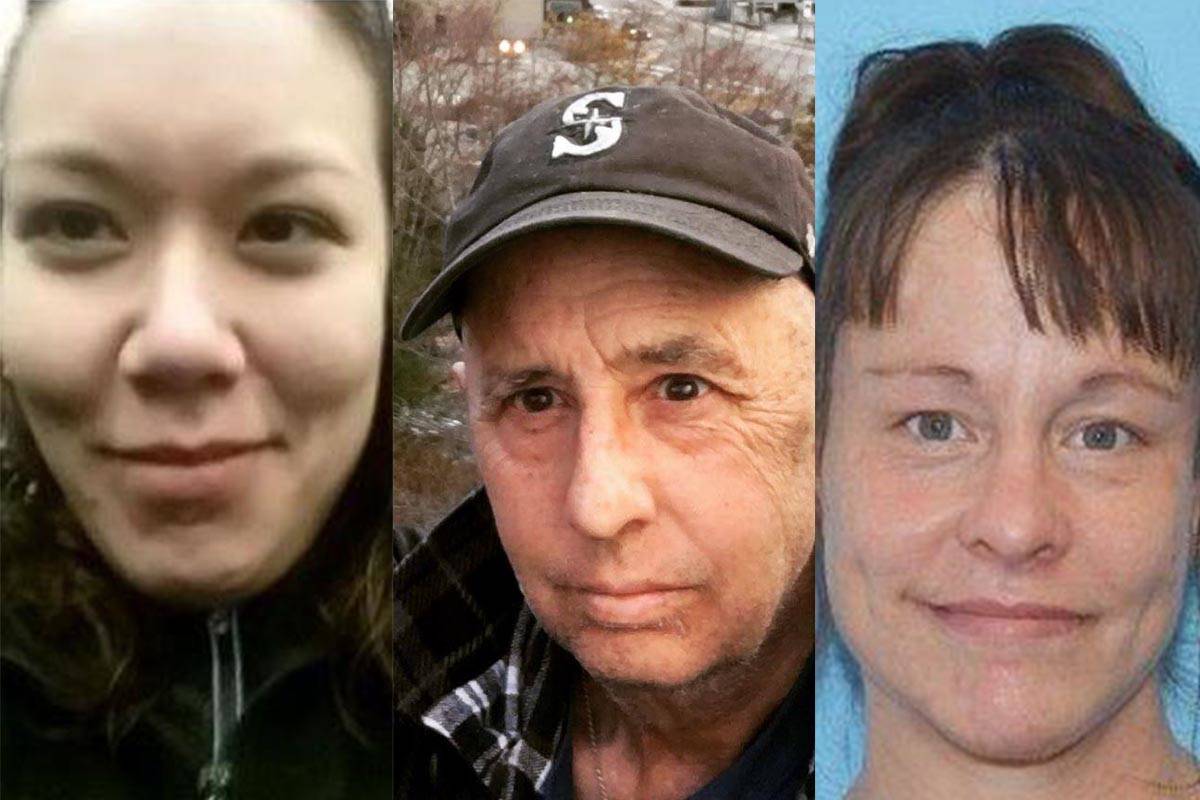The state of Alaska now has an updated missing persons registry, detailing every unsolved missing person case in the state since 1960.
It took three years to compile all the data from law enforcement agencies across Alaska, in order to make a searchable, online database that the public can access.
Malia Miller of the Alaska Department of Public Safety spearheaded the project, which lists 1,231 unresolved missing person cases in all.
Most of the missing person cases are from Anchorage. In Juneau, the registry lists 131 missing person cases, including 15 that are still under investigation. Six of those were opened in the last decade; two — Tracy Lynn Day, 43, and John Franklin Godfrey, 61 — are from this year.
“We don’t get very many (missing persons). It’s a couple a year,” said Lt. Krag Campbell with the Juneau Police Department.
Alaska State Troopers Public Information Officer Ken Marsh said the information was already available to law enforcement, but not the public in this format. The completed list will help the public to see if some of the missing persons cases are resolved — or give them a place to offer information or DNA to help, if the case isn’t.
Many states have missing person registries, though the format varies from state to state. The project did not require any extra funding, Marsh said.
The database also gives people a chance to look and add names to the list by contacting DPS officials, who will personally update the registry, Marsh said.
“Malia Miller received contact from a woman who told her my dad has been missing since 1971,” Marsh said in a phone interview. “They can volunteer to submit DNA to ID remains, which weren’t able to be identified, and provide closure.”
The DNA which people can provide through law enforcement has led to the closure of at least one case this year, Marsh said. Ronald Oquiluk, who went missing from Palmer in 1987, was eventually identified when his sister submitted DNA in 2018, Marsh said. While she died before she could be notified, their family was finally given answers to when he went missing the wilderness outside the ghost town of Interior, nearly 400 miles from his last known location.
In Juneau, missing persons cases come in a number of categories, Campbell said, from missing-critical to cases like runaways. A missing-critical case would be one involving suspicious circumstances, such as someone witnessing another person being thrown in a car, or children, where a child might go missing between getting off the school bus and walking home.
“The faster the you can get on those investigations, the quicker you can locate the child,” Campbell said.
The FBI will also immediately assist in cases involving children under the age of 12, said Agent Steven Forrest, an FBI special agent and public affairs specialist at the Anchorage FBI office. The FBI is seldom otherwise involved in missing persons cases in Alaska, unlike in the Lower 48, where FBI agents routinely handle cases on Native American reservations. Alaska only has one reservation, the Annette Island Reservation near Metlakatla.
“All of our open missing persons are assigned to the investigations unit or to a specific detective,” said Erann Kalwara, JPD’s public safety manager. “If we have a person who’s missing in Juneau, the Alaska State Troopers run the search and rescue, but once the search is canceled, the actual investigation is carried on by the JPD.”
Of the missing persons cases in the Juneau area, 116 are in the jurisdiction of the Alaska State Troopers, meaning that the person was outside the boundaries of the City and Borough of Juneau when the person went missing, such as hikers or boaters where the troopers performed a search and rescue operation.
“We had a couple of those throughout the years, of people going hiking and disappearing,” Campbell said. “People go out hiking and we never see them again.”
Kalwara said most cases come in originally as welfare checks and are typically resolved. Many missing persons cases locally are explained by someone who made an unexpected change in their living or domestic situation, Kalwara said.
All JPD missing persons cases start with the department’s patrol division, then if they’re not resolved, it is handed to the investigative division.
“We kind of suspend cases when we run out of leads or out of places to look, but if we hear something we reopen the case,” Campbell said.
Some cases will remain open for years, Kalwara said, though periodic entries for information or tips with verifiable information will cause the case to rise to the top of the priority list once again. To look for missing persons, detectives and civilian investigators turn to a variety of tools. Investigations involve talking to friends and family, looking up credit card activity and records, searching social media, and looking up cellphone activity.
If you have information or need to report a missing person
Call JPD dispatch at (907)586-0600 or use the Crimeline site to report information anonymously.
• Contact reporter Michael S. Lockett at 757-621-1197 or mlockett@juneauempire.com.

